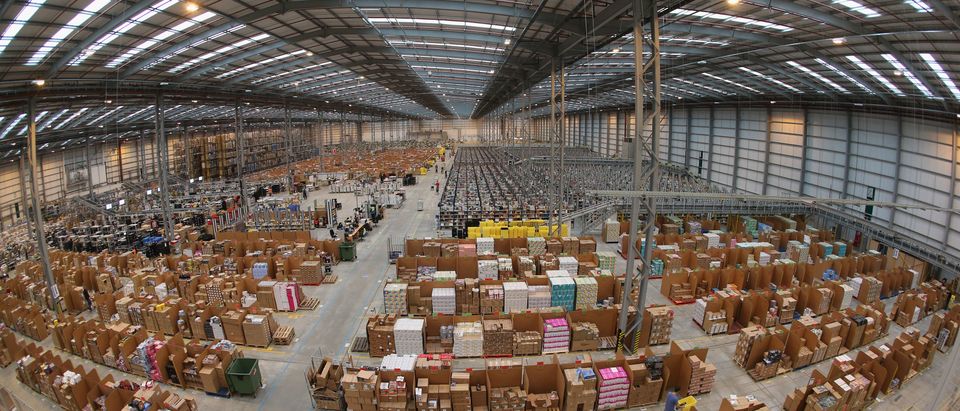Nothing’s official yet, but if Amazon selects Crystal City in Arlington, Virginia, as part of its new second headquarters, they’re making a big mistake. As someone who spent my childhood and most of my adulthood either inside or outside the Beltway, I’m an expert on the region.
Traffic in the D.C. region is horrible. It’s especially bad in Northern Virginia. The quality of life in Old Town Alexandria is attractive, but it’s an outlier.
Amazon should try this experiment: see how long it takes to get to Tyson’s Corner on a Saturday via Interstate 66 or the Beltway. From where I lived in Alexandria, it took 45 minutes. Now consider the quality of life in the region, where hour-long commutes involving 20 miles or less is normal.
D.C. traffic is so famously bad that I’ve met New Yorkers who hate driving through the region when they’re heading south.
I-66 inside the Beltway in Virginia is an embarrassment. Its mere four lanes are constantly clogged. But it’s just one of many examples of poor transit planning in the area.
A little history: when the Beltway, I-66 and the Metro subway system were being planned in the late 1950s through the 1960s, the Virginia statehouse was controlled by representatives who lived outside the northern Virginia suburbs. As Virginia had a pay-as-you-go budget system, the representatives saw no sense in spending money on infrastructure projects for those Yankee incomers in the northern counties.
Now northern Virginia representatives control the statehouse, but it may be too late to engage in large-scale infrastructure projects. Fifty years ago, property was much cheaper; today, road-widening projects would involve buying expensive adjacent properties.
It’s the same problem for expanding the Metro in Virginia — buying expensive property to site more stations on existing lines, and/or expanding lines to cover more territory. Where’s the money going to come from to make these improvements?
Speaking of the Metro, its basic design flaw was relying on escalators to ferry passengers in and out of stations. The escalators in many locations are open to or affected by the elements. Elevator outages are common, forcing passengers to trudge on slippery escalator steps.
At some stops, such as Rosslyn, Virginia, there are 194 feet of steps to trod. Elevators are the backup system, but they cannot move the numbers of passengers who use the escalators. More and larger elevators are needed, but this will incur costs.
Perhaps Amazon was promised a glory of infrastructure improvements if it moved to Crystal City. Good luck with that.
The population of the Tidewater area has grown and has infrastructure needs too. The representatives of rural areas in Virginia, no doubt, remain hostile to big spending up north.
Add to the mix the county versus county conflicts within northern Virginia.
Will Arlington County receive the lion’s share of infrastructure money? If so, what about Fairfax County, which is much larger? Or Loudoun County, a high growth area? Outlying counties such as Prince William (second highest population in the Commonwealth) and Stafford, plus the city of Fredericksburg, all contribute to northern Virginia’s workforce and have infrastructure needs.
Virginia’s governor and business leaders likely have made heaps of promises to Amazon to come to Crystal City. Whether the statehouse in Richmond is open to paying for these promises is an open question.
Today, I live in Wilmington, Delaware. It’s an easy drive or train ride for shopping and commuting. I don’t miss the lousy traffic in D.C. and Virginia at all.
Amazon needs to do hard critical thinking into the quality of life of its employees before it commits to Crystal City. My advice: don’t go there.
Joanne Butler is a graduate of the Kennedy School at Harvard, was a professional staff member (Republican) at the House Ways and Means Committee, and served in President George W. Bush’s administration.
The views and opinions expressed in this commentary are those of the author and do not reflect the official position of The Daily Caller.












